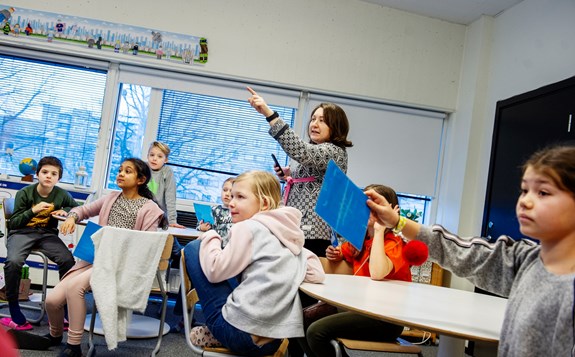We use cookies on this website. Cookies help us deliver the best experience on our website. Read about cookies.
-
- Education
- Education
- Programmes and courses
- Applications and admissions
- Tuition fees
- Scholarships
- Exchange studies at Malmö University
- Study Guidance
-
- After admission
- After admission
- Moving to Malmö
- Pre-orientation
- Arrival guide
-
- About studies at Malmö University
- About studies at Malmö University
- Why choose Malmö University
- Understanding university studies
- Connect with our students
On the page -
- Research
- Research
-
- Doctoral studies
- Doctoral studies
- Doctoral courses
-
- Doctoral schools
- Doctoral schools
- Adaptation of urban space through sustainable regeneration
- ComBine
- Culturally Empowering Education through Language and Literature
- Education, Learning and Globalisation
- Finding ways in a time of great future challenges (FinnFram)
- Swedish National Graduate School in Science and Technology Education Research
- Learning in Multicultural Societal Contexts
- Pedagogy and Vocational Skills
- Relevancing Mathematics and Science Education (RelMaS)
- Sustainable Movement Education
- The National Research School for Professionals in Social Services
- Research subjects
-
- Research centres
- Research centres
- Biofilms Research Centre for Biointerfaces
- Citizen Health
- Imagining and Co-Creating Futures
- Institute for Urban Research
- Malmö Institute for Migration Studies
- Literacy and Inclusive Teaching
- Centre for Work Life Studies
- Sustainable Digitalisation Research Centre
- Centre for Sexology and Sexuality Studies
-
- Research publications
- Research publications
- Search for research publications in Diva
- Malmö University Press
- Research events
- Participate in a research study
- Coffee Break Quiz
On the page -
- Collaboration and Innovation
- Collaboration and Innovation
-
- Levels of collaboration
- Levels of collaboration
-
- Local collaboration
- Local collaboration
- Muvah
- Regional collaboration
- National collaboration
-
- International collaboration
- International collaboration
- UNIC
- Innovation
- Collaboration with students
-
- Collaborate with researchers
- Collaborate with researchers
- Labs and facilities
- Culture collaboration
- Support Malmö University
- Alumni & Friends
On the page -
- About us
- About us
-
- Faculties and departments
- Faculties and departments
-
- Faculty of Culture and Society
- Faculty of Culture and Society
- Department of Global Political Studies
- School of Arts and Communication
- Department of Urban Studies
-
- Faculty of Education and Society
- Faculty of Education and Society
- Department of Childhood, Education and Society
- Department of Sports Sciences
- Department of Culture, Languages and Media
- Department of Natural Science, Mathematics and Society
- Department of Society, Culture and Identity
- Department of School Development and Leadership
- The Centre for Teaching and Learning (CAKL)
-
- Faculty of Technology and Society
- Faculty of Technology and Society
- Department of Computer Science and Media Technology
- Department of Materials Science and Applied Mathematics
- Faculty of Odontology
- University Dental Clinic
-
- Find and contact Malmö University
- Find and contact Malmö University
- Visit Malmö University
-
- News and press
- News and press
- Graphic manual
- Map of the buildings (Google Maps)
- Merchandise
- Supplier information and invoice management
- Whistleblowing
- We will help you with your questions
- Management and decision-making paths
-
- Malmö University's strategy 2030
- Malmö University's strategy 2030
- Sustainability
- Widened recruitment and participation
- Quality assurance work at the University
-
- Malmö Academic Choir and Orchestra
- Malmö Academic Choir and Orchestra
- Student work – video pieces
-
- Annual Academic Celebration
- Annual Academic Celebration
- Academic traditions
- Meet our new professors
- Meet our new doctors
- Honorary doctors
-
- The University in a troubled world
- The University in a troubled world
- Campus total defence
On the page

Irina
Johansson Carlén
Doctoral student/Lecturer
irina.johansson-carlen@mau.se
+46 72 218 51 93
orcid.org/0009-0004-4241-9683
Presentation
I am a doctoral student in Natural Sciences and Mathematics Education (NMDI) and a university lecturer at NMS. I am also part of the research program Disciplinary Literacy and Inclusive Teaching (LIT).
In my research, I am interested in how students in the early school years are offered opportunities not only to learn mathematics but also to understand how to learn mathematics—a kind of meta-knowledge expressed through expectations, norms, and socialization processes.
My dissertation project, 'Doing School, Doing Mathematics'', examines the presence of discursive elements in early mathematics education. I approach this from a commognitive-theoretical perspective on knowledge as participation, meaning that I consider mathematical knowledge in terms of the extent to which one participates in the discourse of mathematics education. A significant part of the research revolves around challenging the dichotomy between thought and action by envisioning learning as both internal (self-talk) and external (conversations with others) communication.
Specifically, my research investigates:
- Language: Vocabulary and its use in context.
- Narratives: How stories are constructed around mathematical objects, such as definitions, descriptions, and relationships.
- Visual Mediators: The graphical representations used to coordinate communication.
- Routines: Procedures and rituals performed in the classroom, as well as the rules governing participation.
In the current study, I explore the routines and rules offered by teaching materials for lower primary grades (grades 1-3), both in terms of what mathematics should be learned and how it should be communicated.
Publications
-
2025 | Conference paper
Mathematical discourse changes during the introduction phase of the early years - A textbook perspective
Irina Johansson Carlén, Clas Olander, Ulrika Ryan
-
2024 | Conference paper
Investigating Teachers' Talk: Challenges of classroom language data generation
Irina Johansson Carlén
